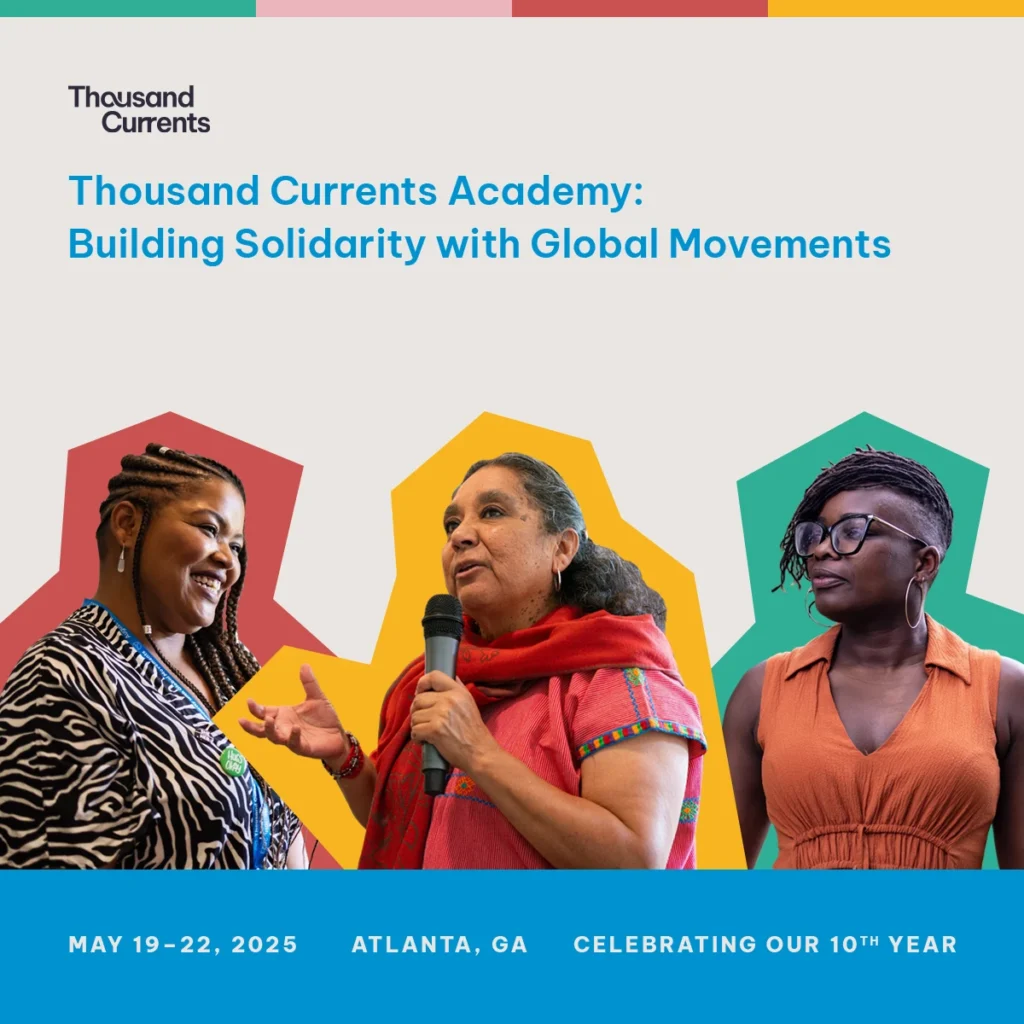Founded in 2012 | Thousand Currents Partner since 2024
Forum Aktivis Perempuan Muda (FAMM – Indonesia)
Nurturing personal and political leadership among Indonesian women
Forum Aktivis Perempuan Muda (FAMM – Indonesia), a collective of individual women activists, was established in 2012 by cis, lesbian, bisexual, and transgender (LBT) women. Currently, FAMM has over 350 young women activists, with 85% of them under the age of 30, spread across 34 provinces in Indonesia. The collective supports young women activists from diverse backgrounds in developing personal and political leadership. Members gain a critical, shared understanding of their contexts and issues, deepen their understanding of gender and power relations, and build trust and solidarity across different identities.
FAMM members are also engaged in community organizing on issues like sexuality and reproductive health rights, assistance to victims of gender-based violence, economic empowerment, sustainable environment, land tenure governance, climate change, and Indigenous Peoples’ rights. FAMM employs the Feminist Popular Education (FPE) approach in their work, a pedagogical approach created by and for women—collectively and critically examining everyday experiences and raising consciousness for organizing and movement building, and acting on injustice with a political vision in the interest of the most marginalized.
Key components of FAMM’s work include:
- Power and Movement Building: A series of programs on feminist political education to support FAMM’s members to build their critical analysis, organize, and strategize. FAMM uses the Feminist Participatory Action Research (FPAR) as the political tool to collectively analyze the issues faced by Indigenous Papaun People, LBTI and rural women.
- Mobilizing for Change: FAMM members work collaboratively with different groups and stakeholders and actively participate in local politics to raise awareness on various issues such as the electoral process, sexual diversity and identities, as well as the environmental and health implications of forest burning caused by palm oil companies. They conduct national campaigns against various types of extractivism through social media to share their members’ experiences resisting these practices.
- Strategies for safety: The network enhances the strategic capacity of its members to participate safely in civic spaces while building collective safety and urgent response strategies to protect its members at local and national levels. Activists receive security training—including training on digital security—and replicate this training locally.


